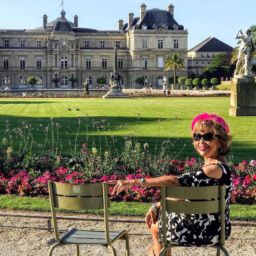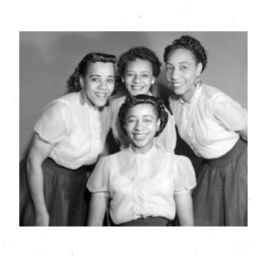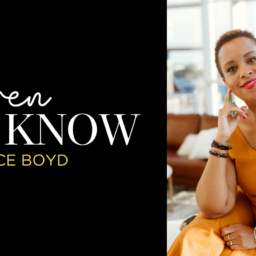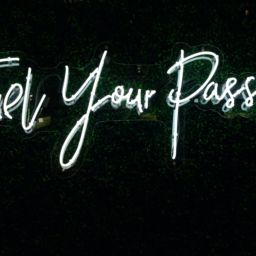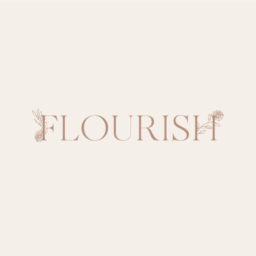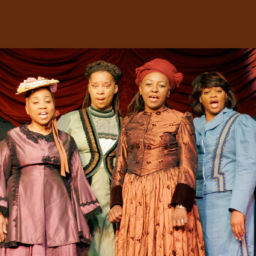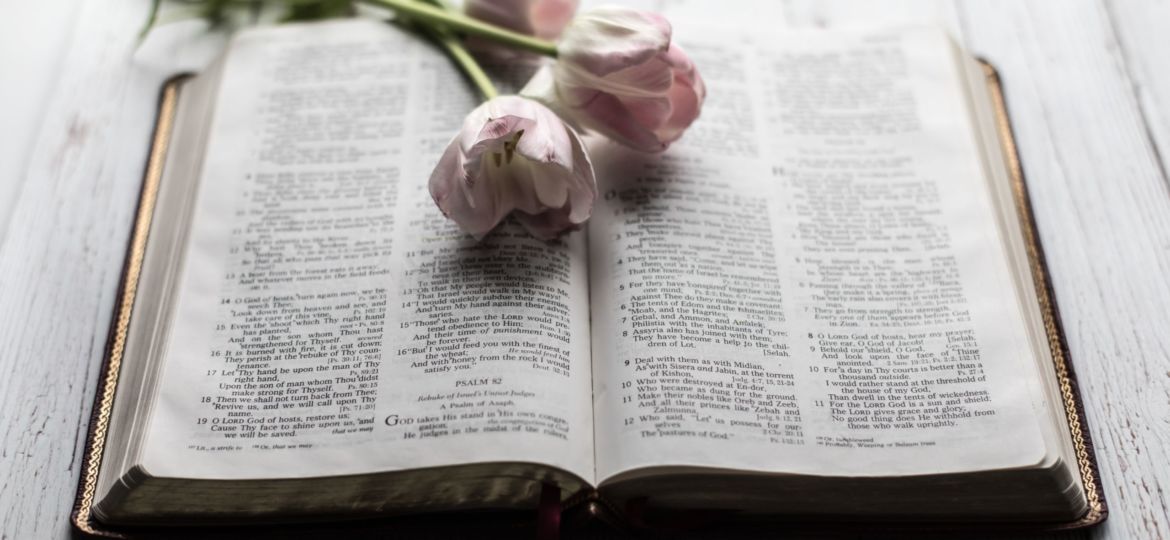
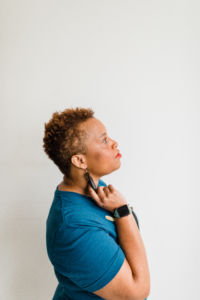 The relationship I have with the Christian faith has been one filled with highs, lows, and everything in between. My faith has sustained me, and yet it’s challenged me enough to make me question its institutions.
The relationship I have with the Christian faith has been one filled with highs, lows, and everything in between. My faith has sustained me, and yet it’s challenged me enough to make me question its institutions.
Imagine me, a Black woman who happens to be queer, talking about her faith. What does that look like? It looks like someone who grew up in the Midwest, born to an active church-attending family. My parents were loving, accepting, and affirming. Little did I know just how much I would need their affirmation later in life. I was raised with a strong relationship to the church, particularly the Black church. My dad would eventually become an ordained minister, further helping mold and shape the backdrop of my life.
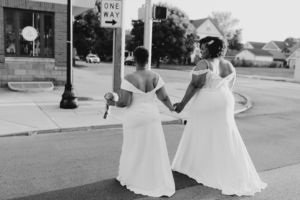 I shared my first kiss with a girl at the age of six. It was a sweet and endearing kiss between two friends, this kiss just happened to be in the basement of the church I grew up in. What an irony for me to feel such safety in that space.
I shared my first kiss with a girl at the age of six. It was a sweet and endearing kiss between two friends, this kiss just happened to be in the basement of the church I grew up in. What an irony for me to feel such safety in that space.
The not-so-notorious incident came to light like this: My parents are informed of the kiss through another church friends’ child. After school one day, my mother asks me about it in a calm and cool manner. I simply explained to her that we were playing “house,” so we kissed. Seemed simple to me. She didn’t get upset or yell, she was understanding and explained how “playing house” didn’t have to involve kisses at such a young age. The years would pass and there would be more kisses and crushes—some girls and some boys. There would be more church activity and involvement and even a few leadership roles. I would later come out to my mom, and she would exclaim proudly, “I’ve been waiting on you to tell me this your entire life.” What a comfort that was. For something I could not quite explain as an adolescent, my mother knew. Parents know. And God did too.
As a child, one of the first songs I learned and sang, was “Yes, Jesus Loves Me”. It is a charming little tune with a simple refrain. It reminds the singer that they are loved because the Bible tells them so. It still brings me comfort when I hear it. I have a reassurance that I am loved by God. I’m glad to know there is proof of this great love. I can search my Bible for a multitude of ways where God shows and proves their love for me.
But what does one do when that same Bible is used against them? When that same Bible is used to portray an unloving God. An all-encompassing God, who despite knowing me and forming me in my mother’s womb, knowing the plans they designed and declared for me would not view me in the image they crafted? What kind of God would God be to not love their creation? A creation others deem undeserving of love, covering, and protection. All based on sexual orientation? The ideology that people who identify as LGBTQIA are destined for an eternity in hell is preached often in church. There is a vision of an angry God when it concerns such matters, but never one of a kind or compassionate God. Never the God who has commanded us to love. For full transparency, the God I know is one to be kind, personal, dependable, and most of all, loving. The God I know to be true, loves us. All of us: straight, Black, disabled, queer, unwed, and everyone in between.
I have a deep reverence for the Black church. It’s raised me, it’s sustained me. It’s also given me a grieved heart. My adult experience in church is full of conundrums.
The Christian faith, as it encompasses the Black church, is a world of its own. She has her own eccentricities and only having been born into her do you understand just how those quirks—good and bad—are ingrained in our culture. Even now, I hold this church in high esteem, even when she’s broken my heart. I often lament over how my LGBTQIA siblings are treated and sometimes cast aside by our beloved ones.
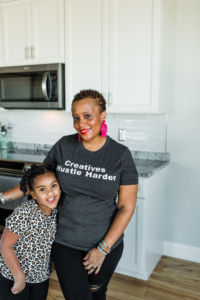 In the Black Church, it’s an unspoken custom, similar to the old military policy of “Don’t ask, don’t tell.” I can identify as LGBTQIA in the Black Church, but don’t share about it. Don’t publicly name or marry your partner, but please, sing these songs and help usher in an atmosphere of praise. It is an unnerving and heartbreaking level of hypocrisy when one can attend a church, serve actively—sometimes in leadership—but not feel safe enough to fully be themselves. How dare I show up as the fearfully and wonderfully made person I am. I often show up, just not as an identifying member of the LGBTQIA community. It is a hard row to tow, being in a space that calls for you to “come as you are,” but with an asterisk. I lived it for years. I have felt shame from the pulpit hearing how I’m hell bound for my same-sex-loving life. I’ve heard the derogatory comments of “Adam & Eve, not Adam & Steve.” It’s taken years of me divorcing those harmful ideas to fully be comfortable about showing up as myself.
In the Black Church, it’s an unspoken custom, similar to the old military policy of “Don’t ask, don’t tell.” I can identify as LGBTQIA in the Black Church, but don’t share about it. Don’t publicly name or marry your partner, but please, sing these songs and help usher in an atmosphere of praise. It is an unnerving and heartbreaking level of hypocrisy when one can attend a church, serve actively—sometimes in leadership—but not feel safe enough to fully be themselves. How dare I show up as the fearfully and wonderfully made person I am. I often show up, just not as an identifying member of the LGBTQIA community. It is a hard row to tow, being in a space that calls for you to “come as you are,” but with an asterisk. I lived it for years. I have felt shame from the pulpit hearing how I’m hell bound for my same-sex-loving life. I’ve heard the derogatory comments of “Adam & Eve, not Adam & Steve.” It’s taken years of me divorcing those harmful ideas to fully be comfortable about showing up as myself.
Where does that leave me as a believer?
It leaves me with a reminder to go to where the love resides. It calls me to remember that God’s word affirms me, just as my parents have all of my life. I’m reminded that the same God who created me did so with everything about my future in mind. From the hairs on my head to the daughter I’d raise and co-parent with my ex-husband, to the woman I’d build a life with and marry. I sit at this intersection of being Black, Christian, and queer, hoping for a church that I can once again call home. I look forward to finding a church that will see me and all the gifts I bring, along with my family. I long for the moment I can sing the old hymns of the Black church, songs my grandmother would hum that still sit with me today. I look forward to serving alongside other members of a welcoming congregation. I sit here knowing that I live with purpose and calling.
I’ll find my way back to the church, but only when I can be seen fully, where I’ll be accepted and affirmed. I have not turned my back on the church, but somedays I wonder if she’s turned her back on me.
Photos: Leah Rife/Leah Rife Photography
Candace Boyd is the creator of Food.Love.Tog. which you can also follow @foodlovetog. She is also an Indy Maven ambassador.
All of our content—including this article—is completely free. However, we’d love if you would please consider supporting our journalism with an Indy Maven membership.








